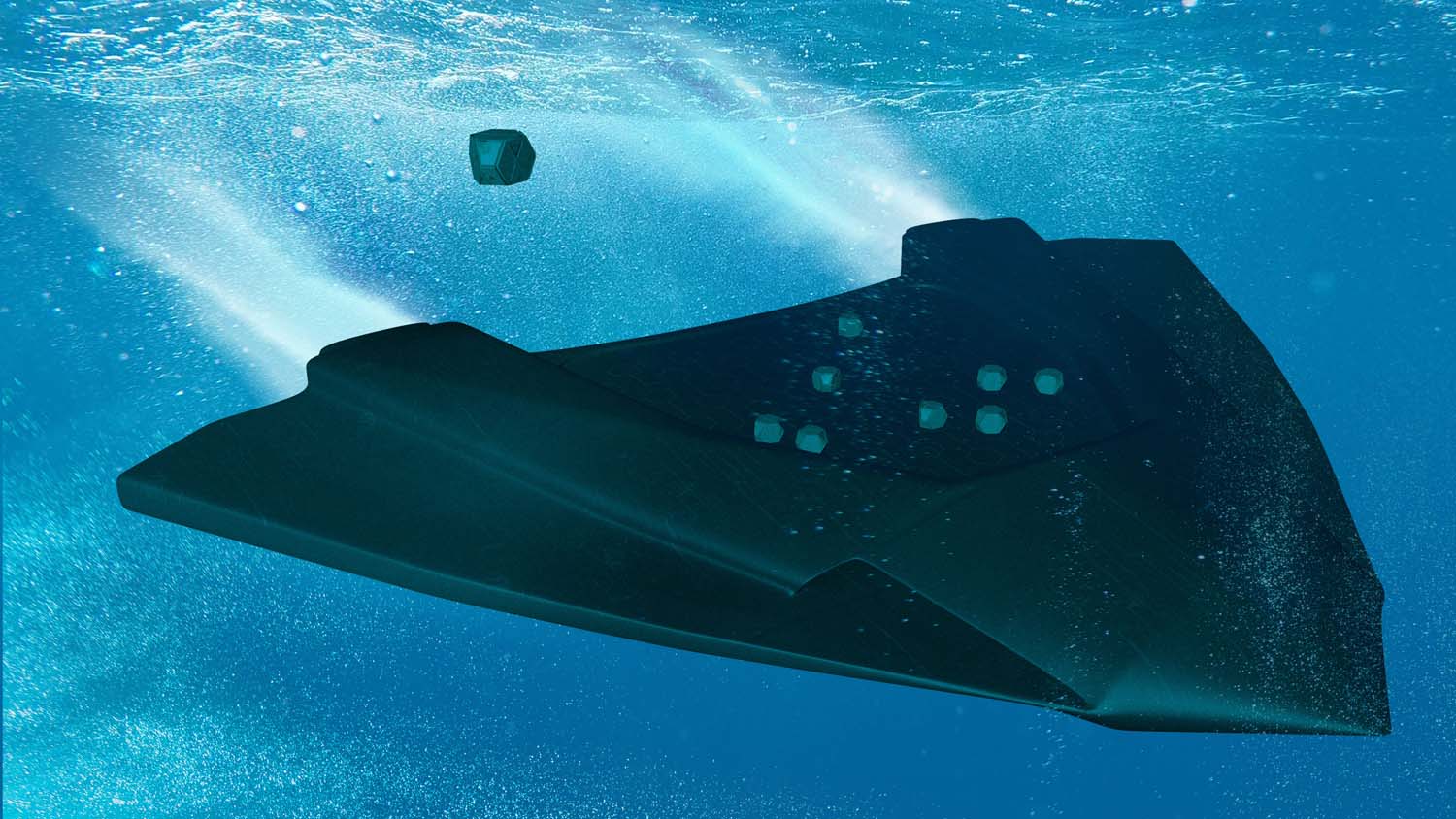
The British Royal Navy has revealed plans to develop a Future Autonomous Fleet programme led by young engineers from UK Naval Engineering Science and Technology (UKNEST).
This programme is in the conceptual phase and focuses on how the service intends to further adopt autonomous technology, including drones, into its future platforms.
UKNEST young engineer Fiona McIntosh said: “The collaborative nature of the project, coupled with us being unconstrained in the ideas and technologies we discussed, really helped us base our concept on technologies we thought would be key to innovation over the coming decades.
“The sessions were really interesting and it was great to see all of the concept designs in a presentation to senior Royal Navy Officers at the end.
“It was encouraging to see that the designs had some similar features and the groups had envisioned similar technologies being utilised by the future fleet. Hopefully we’ll see some of our ideas incorporated into future platforms.”
Some of the conceptual ideas as part of this design challenge include the deployment of drones based in the stratosphere at any time, uncrewed fast attack craft that can accommodate small sized autonomous boats, sea-based biofuels and wind energy powered aircraft carriers, and underwater flagship.
The ideas also include increased artificial intelligence (AI) use to support low-level planning and underwater transport units capable of transporting anything from munitions to food.
The service claims that it is on track to bring the Persistent Operational Deployment Systems (PODS) to fruition within the next ten years.
PODS are interchangeable modular components that can be equipped to the surface fleet.
The PODS approach creates a ‘plug and play’ ship concept, allowing UK naval ships of all sizes to be more adaptable during their deployment.
Royal Navy Second Sea Lord and vice-admiral Nick Hine said: “In a future scenario if we find ourselves unable to compete traditionally in terms of mass, we must think differently if we are to regain operational advantage.
“The young engineers who worked on this project are thinking radically and with real imagination and reflects how the Royal Navy is thinking too.”
In its recently published Defence Command Paper, the UK Navy noted that it is focussed on investing in a more innovative and automated fleet.
In June this year, the British Royal Navy took delivery of the third and final autonomous minehunting boat, RNMB Hebe.



